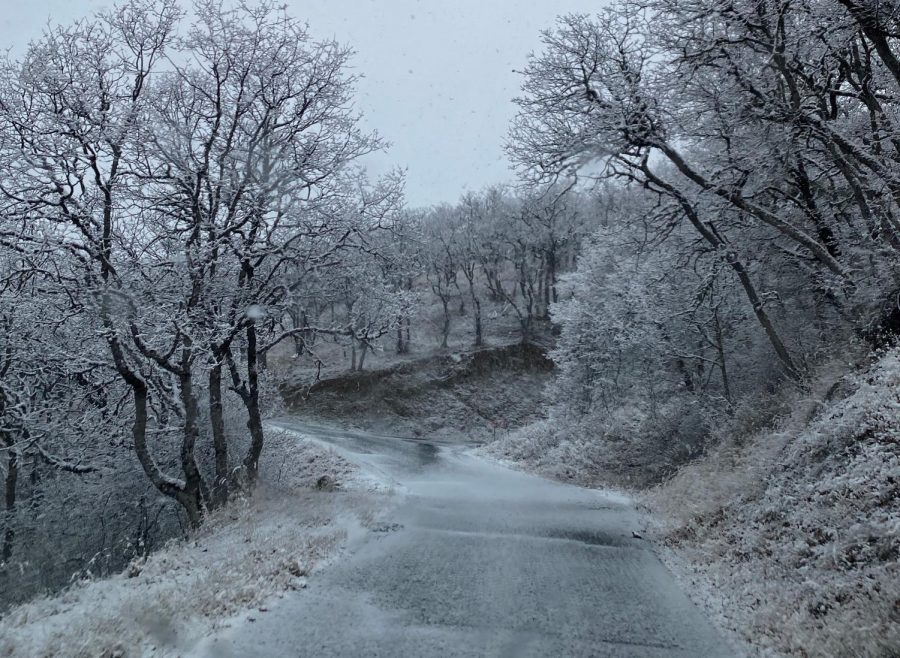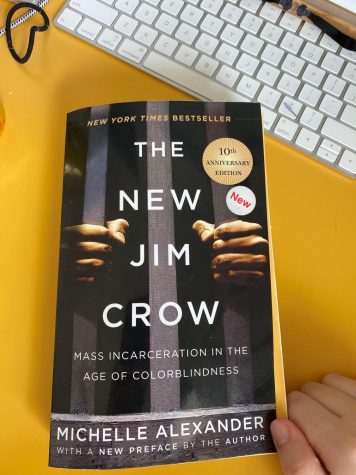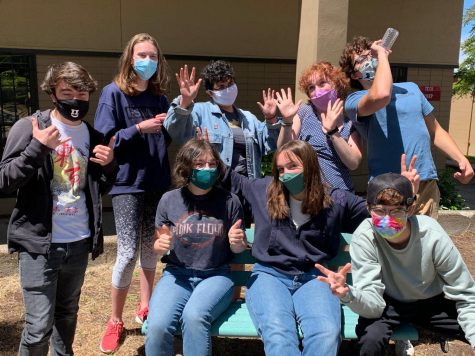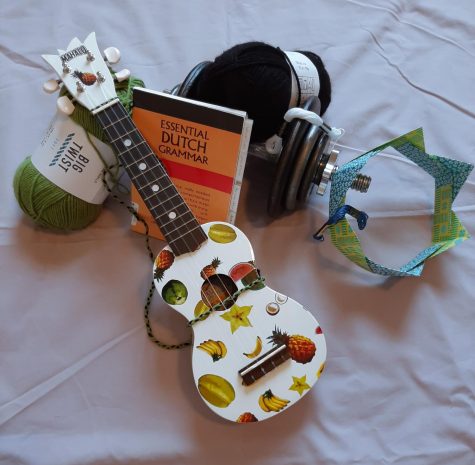Tis the season for depression
This Content is not intended to be a substitute for professional medical advice, diagnosis, or treatment. Always seek the advice of your physician or other qualified health provider with any questions you may have regarding a medical condition.
Sitting on the couch, listening to the music of rain, you suddenly feel drained even though you did nothing all day. The days become a blur and the food you eat gets significantly bigger. Your anger thrives and your eyes are full of tears. It’s as if the frigid air and low amount of sunlight makes the seasonal depression harder to fight. Since moving to Oregon from a sunny desert, I can tell you my seasonal depression has doubled. The feeling of wanting to be in bed all day, or just to be alone has gotten significantly stronger. Seasonal depression does not last forever thankfully, and there are many ways to help process your own seasonal depression, along with ways to help your friends or loved ones with seasonal depression as well.
Some people who are diagnosed with Seasonal Affective Disorder (SAD) can get a light therapy lamp that helps you receive the light and vitamins that you are missing when the sun is not around. They have proven to be very helpful for many people with SAD and are a great option if you are experiencing symptoms. Some advice from Ashland High School’s mental health counselor Kimberly Wasserman is to make sure you are taking care of yourself. Try to make sure you are eating healthy foods and go outside when it’s safe. Personally, I can say that those few main things are incredibly important. Most of us do not have the opportunity to move closer to the equator, but we do have the opportunity to try to get in the sunlight the best and most we can. Even if there is just a window in the clouds with the sun peeking out, that natural light can be helpful! Try standing in the natural sunlight for about 5-15 minutes. Friends have told me trying outdoor activities such as snowboarding, skiing, or even going on a hike has helped with their seasonal depression.
Sometimes, noticing who is dealing with seasonal depression can be hard if you do not pay close enough attention and know what to look for. Some things you should keep an eye out for about a friend or a family member is if they lose enjoyment of something they love, or they start to isolate themselves. The symptoms of seasonal depression that are easier to notice include low energy, having trouble concentrating or having a full conversation. Weight gain and weight loss can be another common symptom. Some may not eat healthy at all, and others may not feel hungry to the point where they don’t want to eat. Seasonal depression can be hard on a person mentally and physically. Being a friend, you can offer to help your loved ones or the ones you care about. You can ask them to go for a walk or even ask if you can just sit there to spend some time with them. It can get so bad that they might force themselves to eat at times. If you’re looking out for a friend, maybe consider being their walking and eating buddy. I do this with a friend, and most weekends we meet up and take my dog or hers for a walk, then after, we go to get healthy food that makes us both feel better.
Seasonal depression is hard, and it can be even harder when you are going through it alone. If you are dealing with some sort of depression please reach out to a friend, a loved one, or a counselor to talk with. If you are not able to hang out six feet apart, you could always call or face time the ones you know. We are deep in the winter months where we do not get enough sunlight, so be sure to be there for your friends. I know it can be hard, especially with distance learning. But please remember to take a break to take care of yourself and others if needed. Go for a walk, eat some healthy food, and drink your water. Ask for help if these things don’t improve your mood. Put yourself first!










